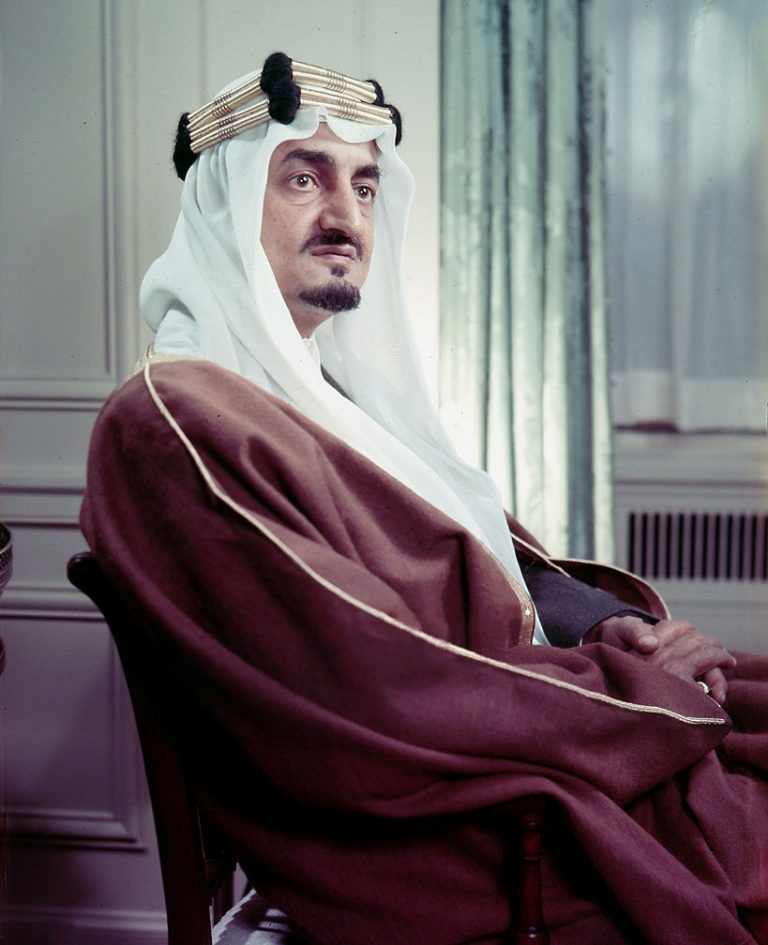
King Faisal
King Faisal of Saudi Arabia was a prominent leader who ruled from 1964 until his assassination in 1975. He is known for his modernization efforts in the kingdom, including significant reforms in education and economic development. Faisal was also a staunch advocate for Arab nationalism and played a pivotal role in the Arab-Israeli conflict, particularly during the 1973 oil embargo, which aimed to leverage oil resources in support of the Palestinian cause. His leadership is often remembered for its commitment to pan-Arab unity and his efforts to enhance Saudi Arabia's influence in the Middle East.
Born on Apr 14, 1906 (119 years old)
Global Media Ratings
Countries Mentioned
No country-level mention data available.
Interactive World Map
Each country's color is based on "Mentions" from the table above.
Recent Mentions
 Gambia:
King Faisal considered Sheikh El Haj Omar Fye as his Special Guest during his pilgrimage to Mecca.
7
Gambia:
King Faisal considered Sheikh El Haj Omar Fye as his Special Guest during his pilgrimage to Mecca.
7
 South Africa:
King Faisal is mentioned as being assured by a British officer that British and Arab interests are aligned.
5
South Africa:
King Faisal is mentioned as being assured by a British officer that British and Arab interests are aligned.
5
 Saudi Arabia:
King Faisal's palace is one of the historical royal palaces located in the regions of Qura and Al-Khalidiya.
9
Saudi Arabia:
King Faisal's palace is one of the historical royal palaces located in the regions of Qura and Al-Khalidiya.
9
 Israel:
King Faisal stated that the oil embargo would continue until the Palestinian issues were resolved.
5
Israel:
King Faisal stated that the oil embargo would continue until the Palestinian issues were resolved.
5
 Tunisia:
King Faisal of Saudi Arabia gave a warm welcome to Habib Bourguiba during his visit to Riyadh.
6
Tunisia:
King Faisal of Saudi Arabia gave a warm welcome to Habib Bourguiba during his visit to Riyadh.
6
 Iran:
King Faisal's visit to Tehran prompted the paving of several streets, including Pahlavi.
6
Iran:
King Faisal's visit to Tehran prompted the paving of several streets, including Pahlavi.
6
 Bangladesh:
The Saudi foreign policy is returning to the Arab nationalist stance of King Faisal from five decades ago.
6
Bangladesh:
The Saudi foreign policy is returning to the Arab nationalist stance of King Faisal from five decades ago.
6